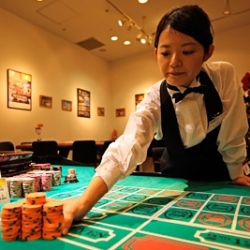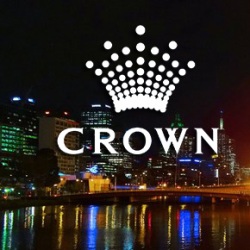Japanese Gambling Industry Could Challenge Macau

Although Japan has not historically been known as a particularly gambling-friendly country, that could change with the passage of the Integrated Resorts (IR) Implementation bill, which is currently proceeding through the legislature. Once adopted, the piece of legislation will usher in an era of brick-and-mortar casinos in the Land of the Rising Sun that could allow it to challenge Macau for preeminence in the Asian offline gambling market.
Background of Japanese Gambling
There are only a few types of legal gambling games allowed in Japan at present. Many cities and prefectures have lotteries, while widespread pachinko parlors use loopholes to get around proscriptions placed on real money wagering. Specific types of racing events are also permitted to allow pari-mutuel betting. All other types of real money wagering, however, are disallowed by law, and this includes poker. The few live poker events that have been held in the country have paid out their winnings as prizes, such as awarding entries to tournaments hosted elsewhere, rather than cash. This allows operators to skirt around the tough restrictions prohibiting most types of gambling in the country of 128 million people.
About the Proposed Legislation
The current legislation is a follow-up on a previous bill that passed into law back in December 2016, and lifted the country’s blanket ban on casinos. The IR Implementation bill subsequently goes into more detail about the rules and regulations that will govern these venues. Integrated resorts refers not to standalone casino facilities, but rather to complexes containing many types of amenities, including hotels, event centers and restaurants, as well as gaming halls. In fact, the bill calls for gambling space to occupy no more than 3 percent of the total square footage of any integrated resort.
Furthermore, up to three integrated resorts would be authorized under the bill, with the intention being not to promote gambling as such but instead to boost the Japanese tourism industry, which is why casinos are envisioned as only part of the appeal of these resorts.
Japanese citizens would be limited to visiting a casino no more than three times per week, and 10 times per month. Furthermore, they will have to pay a fee of ¥6,000 (about $55) per visit, while foreigners will be exempt from these requirements. In addition, gross gaming revenue will be taxed at a rate of 30 percent, and although this is much higher than the taxes levied in Singapore and Las Vegas, it is still lower than the 39% rate in effect in Macau.
Games Permitted
Initially, the plan was to only allow games in which the players square off against the house, including such traditional casino offerings as blackjack and baccarat. The rationale for this is to limit games such as poker where the participants are able to compete against one another and potentially collude.
The latest versions of the IR Implementation bill, however, does actually call for poker tables to be allowed, though. Nevertheless, there are a number of unusual clauses intended to combat any unfair practices by players. No one will be able to play at the same table with his or her acquaintances, for instance, and dealers will have the power to choose who, among the customers waiting for a seat, will get to join a game next.
Political Situation
The IR Implementation bill is one of the cornerstones of Prime Minister Shinzo Abe’s administration. It’s viewed as so important that if it isn’t approved by June 20, when the Diet is scheduled to adjourn, there has been talk of extending the session specifically to get it passed. Abe’s own Liberal Democratic Party and coalition partner Komeito Party are expected to back it strongly.
In a measure seen by political observers as a way to drum up support for the bill, separate legislation was introduced in May to tackle problem gambling. Surveys have shown that this is an issue that many Japanese voters are concerned about, so the provisions designed to combat gaming addiction may ease public opposition to the IR Implementation bill.
The land sale scandals that have embroiled Abe and his deputy prime minister Taro Aso, however, could spell trouble for the casino bill. In fact, they may distract the prime minister from his legislative agenda and – although unlikely – could ultimately force him to resign.
Industry Expectations
Because Japan doesn’t really have a domestic casino industry, contracts to build the resorts are likely to be awarded to outside companies who have hungrily been eyeing the country’s domestic market. Front-runners in this regard includes Melco Resorts & Entertainment, Genting Group, MGM Resorts and Las Vegas Sands.
If the IR Implementation bill becomes law this year, the first resorts could then be open by 2023. Initial revenue projections of about $40 billion per year are now considered too optimistic especially given the numerous restrictions that are contained within the casino bill. Most analysts currently forecast revenue between $6 and $15 billion for the first few years of licensed Japanese casino gaming.
This would still mean that Japan would likely surpass Las Vegas and its annual gaming revenue of about $7 billion right out of the gate. However, Macau’s 2017 gross gaming revenue was close to $33 billion: well beyond what most experts are expecting for Japanese casinos. Nonetheless, assuming the first few casinos prove to be successful, we could see more authorized than just the three that the current IR bill calls for. This will undoubtedly lead to greater revenues, and as Japan siphons market share away from Macau, it could become the new center of Asian gambling.








